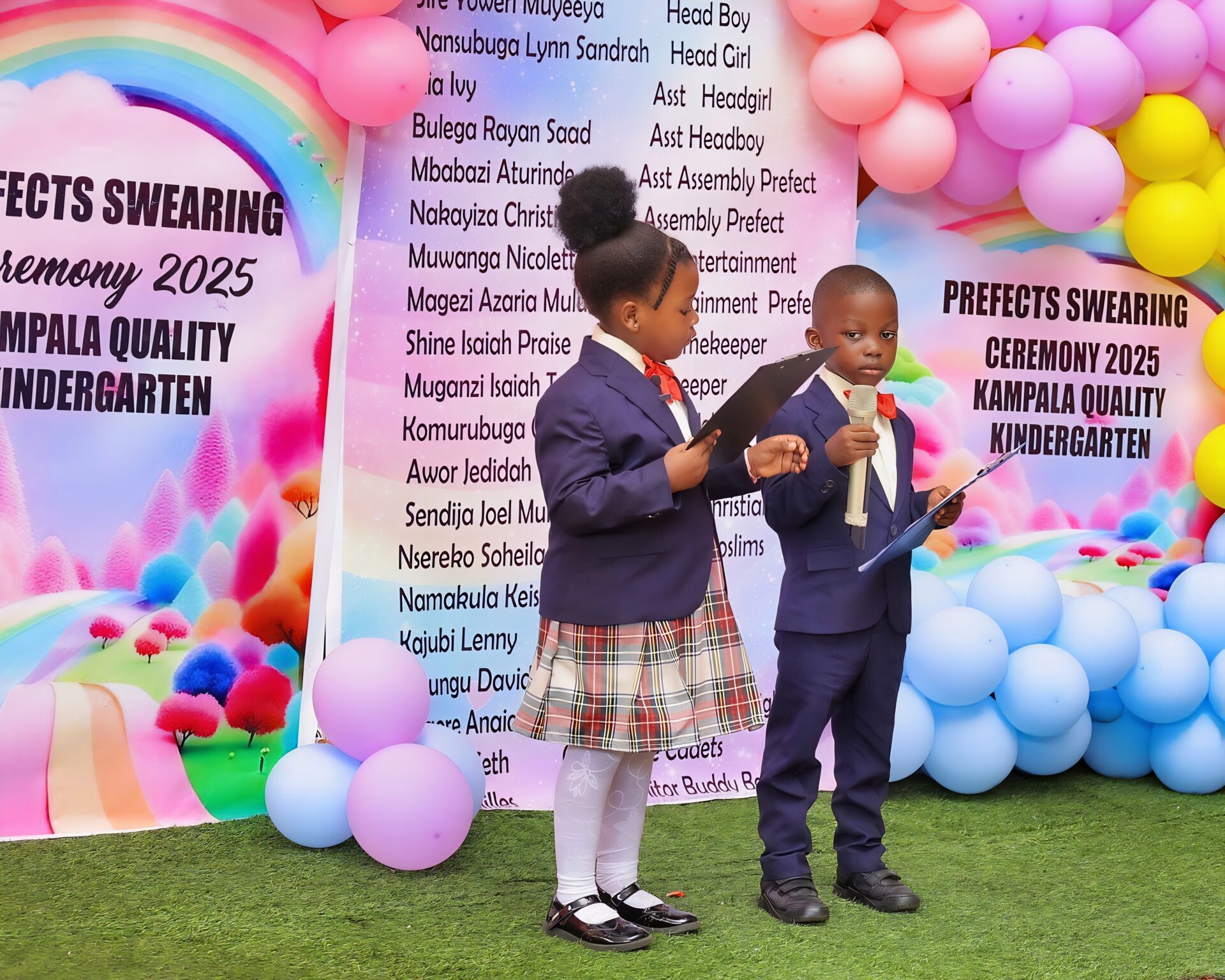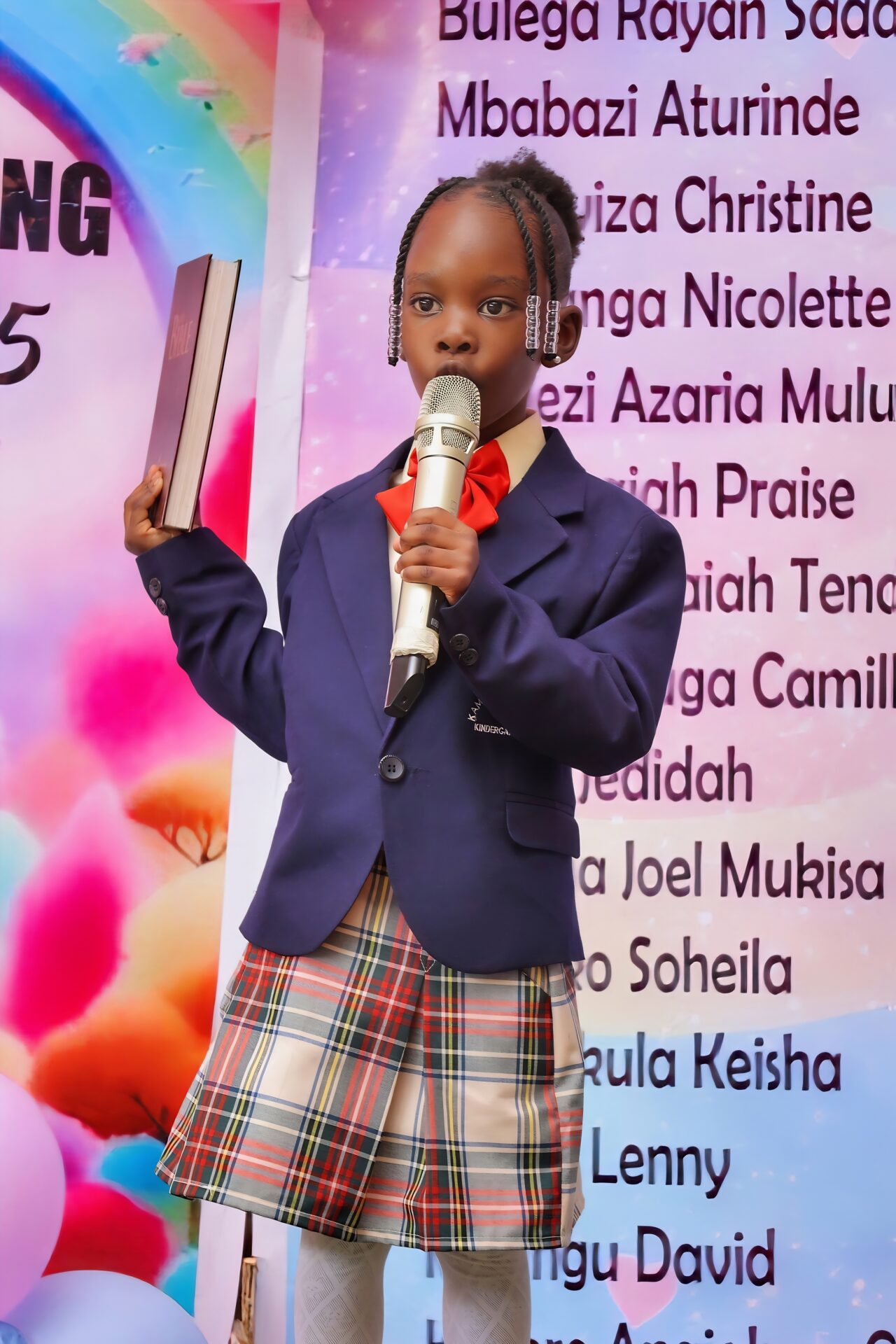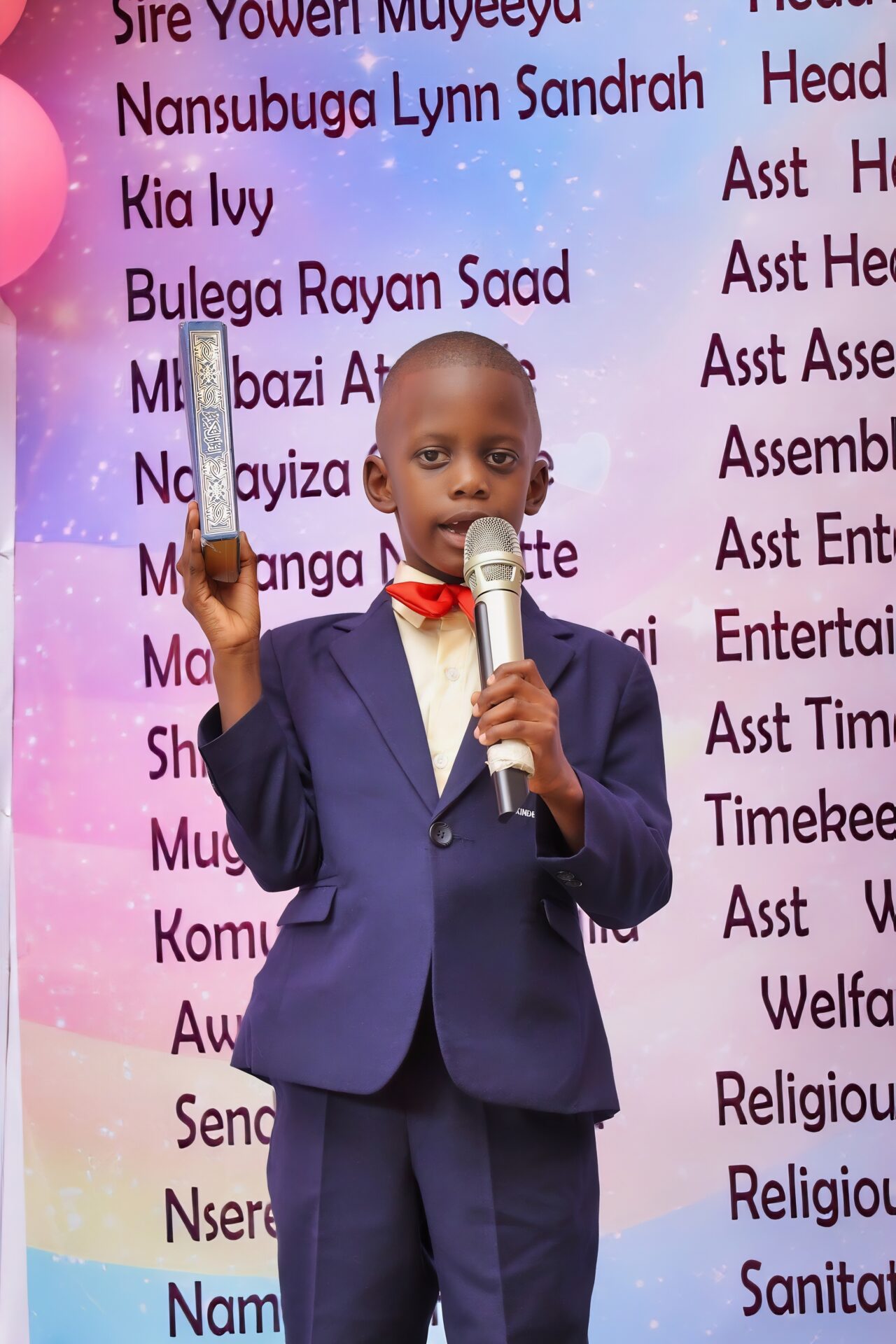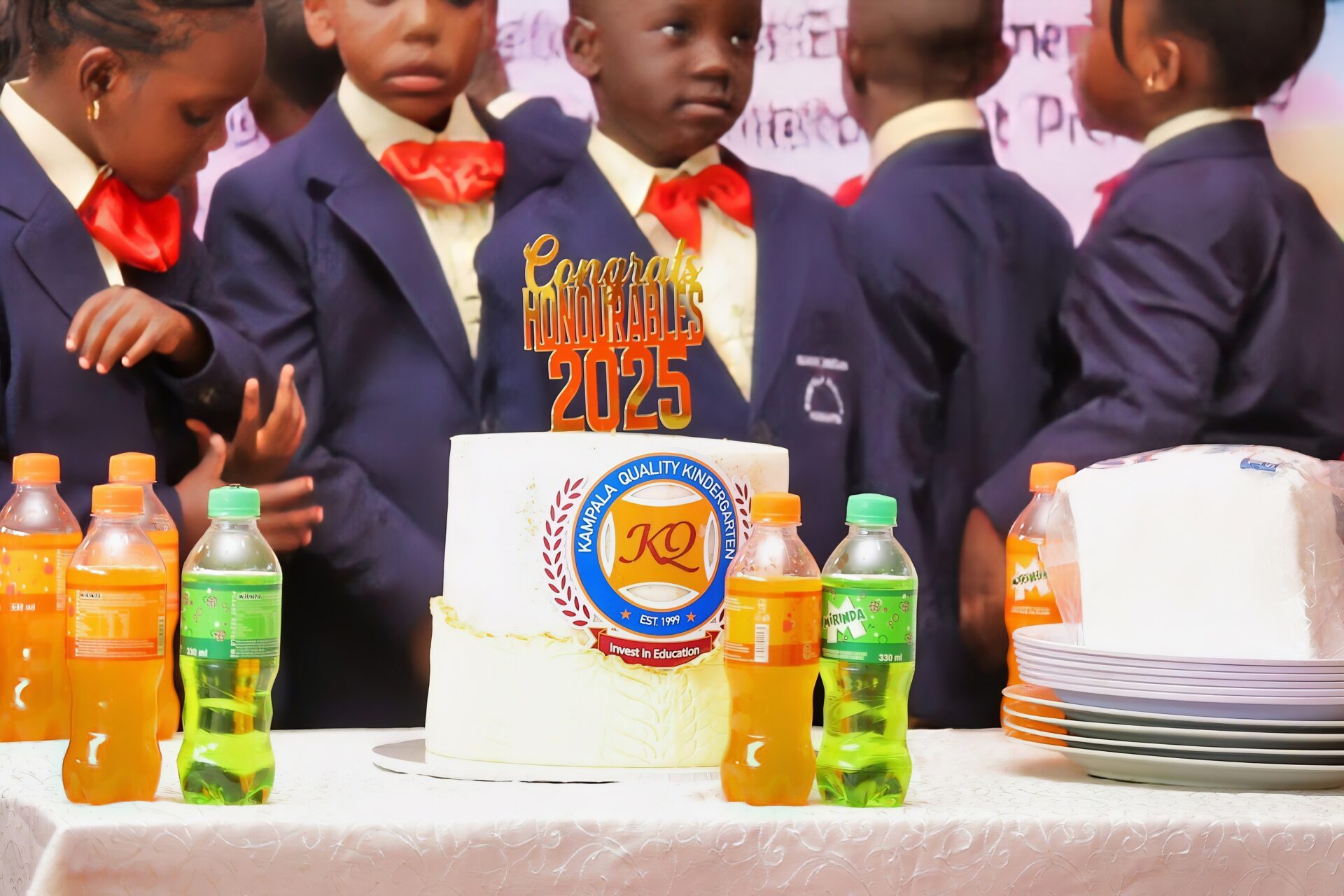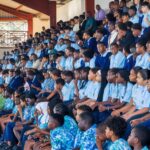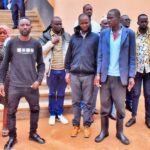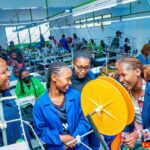Empowering Tomorrow’s Leaders Today: The Transformative Role of Kampala Quality Kindergarten in Early Leadership Development
In a world where leadership skills are increasingly vital for personal, professional, and societal success, Kampala Quality Kindergarten stands as a beacon of innovation in early childhood education. Nestled in the heart of Uganda, this pioneering institution is redefining how young children can be nurtured into confident, compassionate, and capable leaders. Through its unique prefect system, democratic elections, and child-centred approach, Kampala Quality Kindergarten is proving that leadership isn’t confined to boardrooms or parliaments—it begins in classrooms, playgrounds, and communities. By blending global best practices with culturally relevant strategies, the school equips its students with essential life skills such as emotional intelligence, resilience, teamwork, and civic responsibility. From organizing litter-free campaigns to mediating peer conflicts, these young leaders are not just learning—they’re actively contributing to their school and society. This article explores the profound impact of Kampala Quality Kindergarten’s initiatives, offering insights into the importance of early leadership development, the role of parental and community involvement, and the broader implications for Uganda’s future workforce, governance systems, and social cohesion. Discover how investing in our youngest citizens today lays the foundation for a more equitable, sustainable, and compassionate world tomorrow.
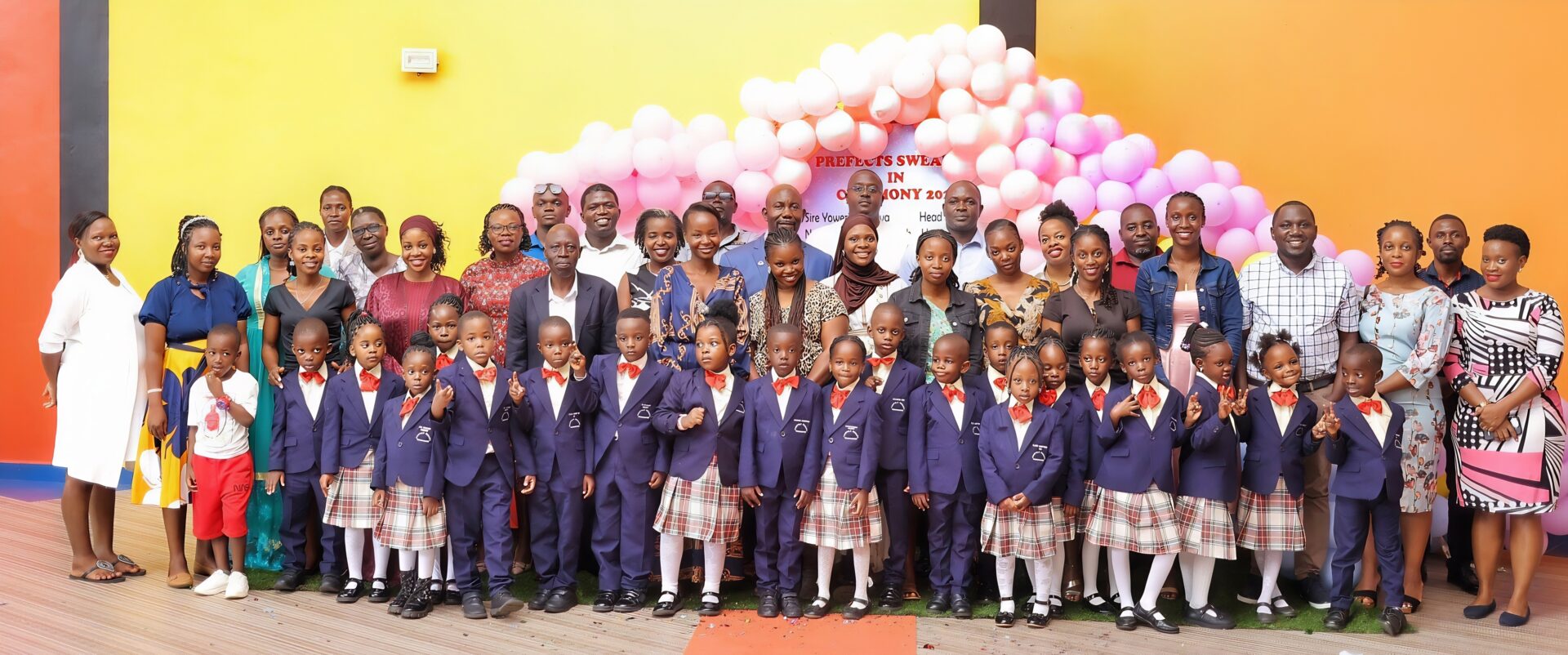
The Importance of Early Leadership Development
In the lush, sunlit courtyards of Kampala Quality Kindergarten, young children are not merely learning to count or spell; they are being equipped with skills that will shape their futures as confident, capable leaders. Research has consistently shown that instilling leadership qualities in early childhood lays a robust foundation for lifelong personal and professional success. This is particularly relevant in Uganda’s dynamic cultural and educational landscape, where fostering resilience, emotional intelligence, and a sense of responsibility from a tender age can bridge gaps in opportunity and prepare children for an ever-evolving world.
Why Starting Early Matters
Leadership development in the early years is far more than a trend—it is grounded in science and pedagogy. According to developmental psychology, the formative years between ages three and seven are critical for brain development, particularly in areas related to social interaction, problem-solving, and self-regulation. For instance, when a child takes on a small leadership role—such as organizing a group activity or mediating a disagreement among peers—they practice essential life skills like decision-making, empathy, and conflict resolution. These experiences contribute significantly to building confidence, which empowers children to take initiative and face challenges head-on.
Moreover, early exposure to leadership roles helps cultivate resilience —a trait that is especially vital in contexts like Uganda, where socio-economic disparities and environmental challenges often demand adaptability and perseverance. By teaching children to navigate setbacks constructively (e.g., losing an election or failing at a task), educators foster a growth mindset that encourages them to view failures as stepping stones rather than roadblocks.

Emotional intelligence is another cornerstone of effective leadership. In multicultural settings such as Kampala, where diversity thrives both linguistically and culturally, children who learn to understand and manage their emotions while respecting those of others are better prepared to lead inclusively. Whether it’s comforting a friend who feels excluded during playtime or ensuring everyone gets a turn during storytelling sessions, these seemingly simple acts nurture compassion and teamwork—qualities that define exceptional leaders.
Alignment with Global Educational Trends
The emphasis on early leadership development aligns seamlessly with global shifts in education philosophy. Around the world, there is growing recognition that traditional academic achievement alone does not suffice in preparing children for the complexities of modern life. Instead, schools are increasingly adopting holistic approaches that prioritize character-building alongside cognitive growth—a movement often referred to as “21st-century skills.”
For example, the British curriculum widely adopted across international schools in Uganda places significant importance on developing soft skills such as communication, collaboration, and critical thinking. Similarly, Finland’s renowned education system integrates opportunities for student agency even in preschool settings, allowing children to make choices about their learning paths and take ownership of their actions. Such models underscore the universal value of nurturing leadership traits early, transcending geographical boundaries.
Closer to home, initiatives like Kampala Quality Kindergarten’s prefect system exemplify how local institutions can adopt globally recognized best practices while staying rooted in their unique context. By electing young leaders through a democratic process, the school mirrors real-world governance structures, thereby familiarising children with civic responsibilities—an approach relevant in Uganda, where youth engagement in public affairs continues to gain momentum.
A Tangible Impact: Real-Life Examples
Consider the story of Amina, one of this year’s newly elected HeadGirls at Kampala Quality Kindergarten. At just six years old, she already demonstrates remarkable poise and determination. During her acceptance speech, she pledged to ensure every child in her class felt heard and valued—a promise inspired by her own experience overcoming shyness under the mentorship of last year’s prefects. Stories like Amina’s highlight how structured leadership programs provide safe spaces for children to experiment, grow, and discover their potential.

Furthermore, studies conducted in similar Ugandan primary schools have revealed that students involved in leadership activities exhibit higher levels of motivation and academic performance compared to their peers. Teachers report improved classroom dynamics, reduced instances of bullying, and increased willingness among pupils to collaborate on projects—all outcomes directly linked to enhanced leadership capabilities.
Countering Scepticism
Critics may argue that assigning formal titles or responsibilities to very young children risks creating undue pressure or prematurely thrusting them into adult-like roles. However, proponents counter that leadership at this stage need not involve heavy burdens but rather light-touch, age-appropriate tasks designed to inspire rather than overwhelm. For instance, asking a child to lead morning prayers or assist a teacher in distributing materials fosters accountability without compromising the joy of childhood.
Additionally, involving parents and guardians ensures that expectations remain realistic and supportive. Workshops or orientation sessions could educate families on how to reinforce leadership lessons at home, further solidifying the impact of school-based initiatives.
Ultimately, the importance of early leadership development cannot be overstated. It equips children with the tools they need to thrive—not only as individuals but also as contributors to their communities and nations. In Uganda, where the next generation will inherit both immense opportunities and formidable challenges, empowering young leaders today is an investment in a brighter tomorrow. As Kampala Quality Kindergarten so aptly demonstrates, leadership truly begins early—and its ripple effects extend far beyond the confines of the classroom.
Kampala Quality Kindergarten: A Model for Child-centred Education
Nestled in the bustling heart of Kampala, Uganda, Kampala Quality Kindergarten stands as a shining example of how early childhood education can be transformed into an empowering and enriching experience. What sets this institution apart is not just its commitment to academic excellence but its unwavering focus on nurturing the whole child—intellectually, socially, emotionally, and physically. At a time when many schools prioritise rote learning or rigid curricula, Kampala Quality Kindergarten has carved out a reputation as a beacon of child-centred education, fostering creativity, independence, and leadership from the earliest stages of development.
Holistic Development: Beyond Academics
At Kampala Quality Kindergarten, education is viewed as more than just mastering letters, numbers, or colours. Instead, it embraces a holistic approach that addresses every aspect of a child’s growth. This philosophy aligns closely with global educational trends, particularly those seen in progressive systems like the British Early Years Foundation Stage (EYFS) framework, which emphasises play-based learning, exploration, and personalised support.

For instance, each day at Kampala Quality Kindergarten begins with “circle time,” where children gather to share stories, discuss feelings, and set goals for the day. These sessions are designed to build emotional intelligence, self-awareness, and communication skills—all critical components of effective leadership. Teachers encourage students to express themselves freely, whether through art, music, drama, or storytelling, ensuring that no child feels constrained by traditional notions of achievement.
This emphasis on well-rounded development extends to physical health as well. The school boasts expansive outdoor play areas equipped with climbing frames, sandpits, and vegetable gardens where children learn about sustainability while engaging in hands-on activities. Such initiatives reflect the growing recognition in Uganda—and globally—that physical activity and environmental awareness are integral to a child’s overall wellbeing.
Innovative Approach to Student Empowerment
One of the most distinctive features of Kampala Quality Kindergarten is its innovative approach to student empowerment. Unlike conventional settings where authority rests solely with adults, this institution actively involves children in decision-making processes. The recent swearing-in ceremony of the newly elected prefects is a prime example of how the school fosters a sense of agency and responsibility among its pupils.
The election process itself mirrors democratic principles, teaching children valuable lessons in fairness, representation, and civic engagement. Candidates deliver short speeches outlining their ideas for improving the school environment, ranging from organising litter-free campaigns to creating buddy systems for new students. Once elected, these young leaders take on light yet meaningful responsibilities, such as helping maintain classroom order, facilitating group discussions, or assisting younger peers during transition times.
Such practices cultivate a culture of accountability and mutual respect. As one teacher remarked, “When children see their ideas being implemented, they realise that their voices matter. It’s incredibly empowering.”
Cultural Sensitivity and Community Connection
Another hallmark of Kampala Quality Kindergarten is its deep-rooted connection to local culture and community values. In a country as diverse as Uganda, where over 50 languages are spoken and traditions vary widely across regions, the school places great importance on celebrating multiculturalism. Lessons often incorporate Ugandan folklore, songs, and dances, alongside international content, to ensure that children develop pride in their heritage while appreciating global perspectives.
Furthermore, the school actively collaborates with parents and local stakeholders to reinforce its child-centred ethos. Regular workshops and open days invite families to participate in their child’s learning journey, bridging the gap between home and school. For example, during last term’s “Parent-Child Leadership Day,” mothers and fathers joined their children in team-building exercises and role-playing scenarios, gaining firsthand insight into the leadership skills being nurtured within the classroom.
This strong sense of community also manifests in outreach programs aimed at addressing societal challenges. Students recently led a campaign to collect books for underprivileged rural schools, demonstrating how even the youngest members of society can contribute meaningfully to social change.
Teacher Training and Professional Excellence
Behind every successful child-centred institution lies a team of dedicated educators, and Kampala Quality Kindergarten is no exception. The school invests heavily in ongoing professional development for its staff, drawing inspiration from both local expertise and international best practices. Many teachers have undergone training in Montessori methods, Reggio Emilia philosophies, and other child-focused pedagogies, enabling them to create dynamic, inclusive learning environments.
Classrooms are intentionally designed to spark curiosity and exploration. Low shelves stocked with age-appropriate materials allow children to independently select activities that interest them, promoting autonomy and problem-solving skills. Teachers act as facilitators rather than directors, guiding rather than dictating, which encourages children to take ownership of their learning.
A Model Worth Replicating
What makes Kampala Quality Kindergarten truly exceptional is its ability to blend global educational standards with culturally relevant practices tailored to the Ugandan context. Its success serves as a blueprint for other institutions seeking to adopt child-centred approaches without losing sight of local realities. By prioritising holistic development, fostering innovation, and maintaining strong ties with the community, the school has proven that quality early education need not come at the expense of cultural identity or accessibility.
Addressing Potential Counterarguments
Some critics might argue that such progressive models require substantial resources, making them impractical for less affluent schools. While it is true that Kampala Quality Kindergarten benefits from certain advantages—such as modern facilities and highly trained staff—its core principles can be adapted to resource-limited settings. For example, community-driven initiatives like parent-teacher partnerships and low-cost creative projects can replicate elements of the school’s success elsewhere.
Others may question whether focusing on leadership so early detracts from foundational academics. However, evidence suggests that the two go hand-in-hand. When children feel confident and valued, they are more likely to engage enthusiastically in all aspects of learning, including literacy and numeracy.
Kampala Quality Kindergarten exemplifies what is possible when education is centred around the needs, interests, and potential of the child. Through its holistic curriculum, innovative empowerment strategies, and deep community connections, the school has redefined what early childhood education can achieve—not only in Uganda but as a model worthy of emulation worldwide. As we celebrate the swearing-in of its newest cohort of prefects, we are reminded that leadership begins with trust, opportunity, and belief in the boundless capabilities of young minds.
The Role of Elections in Teaching Democracy
In the vibrant classrooms of Kampala Quality Kindergarten, democracy is not just a concept confined to textbooks or political discourse—it is brought to life through the simple yet profound act of electing prefects. For young children, participating in an election process provides hands-on lessons in voting, representation, and civic responsibility. These experiences lay the groundwork for understanding how democratic systems function and instil values that will prepare them for active participation in society as they grow older. In Uganda’s evolving socio-political landscape, where fostering informed and engaged citizens is vital, initiatives like these serve as early stepping stones toward a more participatory future.
Democracy in Action: The Election Process
At Kampala Quality Kindergarten, the annual prefect elections are conducted with surprising seriousness and attention to detail. Children nominate themselves or are encouraged by peers to run for office, mirroring real-world electoral campaigns. Candidates then deliver short speeches outlining their ideas for improving school life—whether it’s ensuring everyone gets a turn on the swings during playtime or organising litter-free Fridays.

On polling day, each child casts their vote using paper ballots placed into makeshift ballot boxes, supervised by teachers acting as impartial “election officials.” This ritualistic process teaches children the importance of confidentiality, fairness, and respecting the outcome of collective decisions. It also introduces them to key democratic principles such as majority rule, representation, and accountability.
For instance, when five-year-old Brian was elected Head Boy after promising to help his classmates resolve conflicts peacefully, he quickly realised that his role came with responsibilities. He had to listen carefully to others’ concerns, mediate disagreements, and follow through on his promises—all skills essential for effective leadership and civic engagement later in life.
Building Foundations for Civic Responsibility
By participating in elections at such a young age, children begin to understand the significance of their voices within a community. They learn that their choices matter and that leadership involves serving others rather than wielding power over them. This sense of civic duty is particularly relevant in Uganda, where youth engagement in governance remains a critical area for development. According to reports from organisations like the United Nations Development Programme (UNDP), empowering young people to participate in decision-making processes can lead to stronger democracies and more resilient societies.
Moreover, the experience fosters respect for differing opinions and perspectives. During campaign speeches, children hear diverse viewpoints and must evaluate which candidate aligns best with their vision for the school. After the results are announced, those who lose learn to accept defeat gracefully, while winners understand the importance of inclusivity and collaboration. Such lessons cultivate tolerance and humility—qualities indispensable for navigating complex social dynamics in adulthood.
Preparing for Future Participation in Society
While some may dismiss kindergarten elections as mere play-acting, research suggests that early exposure to democratic practices shapes lifelong attitudes toward civic involvement. A study published in the British Journal of Educational Psychology found that children who engage in structured decision-making activities exhibit higher levels of political efficacy—the belief that one’s actions can influence societal outcomes—as adults.
In Uganda, where voter apathy and mistrust in institutions have historically hindered democratic progress, instilling positive associations with democracy from an early age could yield transformative results. By normalising concepts like voting, representation, and public service, schools like Kampala Quality Kindergarten contribute to creating a generation of citizens who view participation in governance as both a right and a responsibility.
Practical Lessons Beyond the Classroom
The impact of these elections extends far beyond the confines of the schoolyard. Consider the story of Sarah, last year’s HeadGirl, who organised a successful fundraising drive to purchase new sports equipment for her class. Through this initiative, she learned about budgeting, teamwork, and advocating for resources—skills directly applicable to adult roles in community organising or public administration. Similarly, another group of prefects spearheaded a cleanliness campaign that inspired neighbouring schools to adopt similar practices, demonstrating how small acts of leadership can ripple outward to effect broader change.
These practical applications underscore the relevance of early democratic education in preparing children for real-world challenges. Whether it’s leading a neighbourhood clean-up effort, standing up for marginalized voices, or even running for local government positions in the future, the lessons learned at Kampala Quality Kindergarten provide a solid foundation upon which to build meaningful contributions to society.
Addressing Potential Counterarguments
Critics might argue that exposing children to elections at such a young age risks trivialising serious democratic processes or overwhelming them with responsibilities beyond their years. However, proponents counter that these exercises are designed to be age-appropriate and fun, ensuring that children view democracy as something accessible and enjoyable rather than daunting or abstract.
Furthermore, involving parents and guardians helps contextualise these activities within larger societal frameworks. Workshops explaining the purpose and benefits of the election process enable families to reinforce the lessons learned at school, creating a supportive ecosystem for civic learning. Teachers also ensure that losing candidates are celebrated for their efforts, emphasising that participation itself is valuable regardless of the outcome.
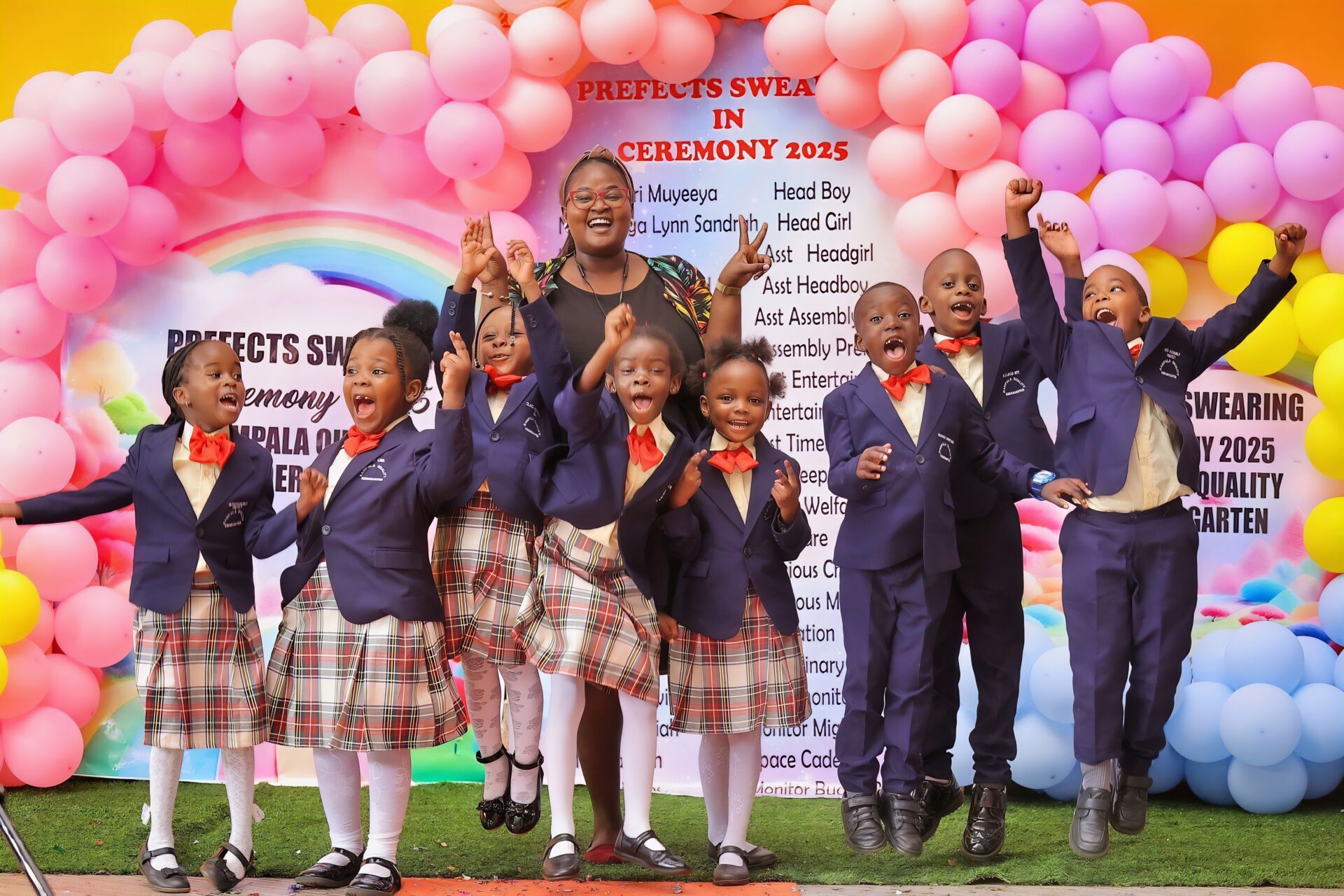
The role of elections in teaching democracy cannot be overstated. At Kampala Quality Kindergarten, the seemingly simple act of casting a ballot becomes a powerful lesson in citizenship, cooperation, and shared responsibility. By engaging children in democratic processes early, the school equips them with tools they need to navigate—and ultimately shape—the world around them.
As Uganda continues to grapple with challenges ranging from political instability to socio-economic inequality, investing in the next generation of leaders has never been more urgent. Initiatives like those at Kampala Quality Kindergarten remind us that democracy begins not in parliaments or polling stations but in playgrounds and classrooms. When we empower our youngest citizens to lead, we are planting seeds of hope for a brighter, more inclusive future—one vote at a time.
Challenges Faced by Young Leaders
The concept of child prefects at Kampala Quality Kindergarten is undeniably inspiring, offering young children a unique opportunity to develop leadership skills and take on responsibilities that foster personal growth. However, as with any educational initiative, the implementation of such roles is not without its challenges. Critics argue that assigning formal responsibilities to very young children may inadvertently overwhelm or burden their developing minds, potentially detracting from the carefree nature of childhood. In Uganda’s dynamic cultural and educational context, where early years are often considered a time for exploration and play, striking the right balance between duty and leisure becomes paramount.
Potential Overwhelm: A Legitimate Concern
One of the primary concerns raised by critics is the risk of overburdening young leaders with tasks that might exceed their emotional or cognitive capacities. While older students in primary or secondary schools may have more developed problem-solving skills and resilience, kindergarten-aged children are still navigating foundational aspects of self-regulation and social interaction. For instance, a five-year-old Head Boy tasked with mediating disputes among classmates or ensuring orderly transitions between activities could feel pressured if they perceive their role as too weighty or complex.
Moreover, the pressure to “perform” as a leader—whether it’s delivering speeches, maintaining discipline, or representing their peers—could lead to stress or anxiety, particularly if expectations are unclear or unrealistic. This concern is especially pertinent in settings like Uganda, where societal norms often place high value on authority figures, potentially creating an undue sense of responsibility for young children stepping into leadership roles.
Balancing Duty and Play
Despite these valid concerns, it is possible—and indeed essential—to strike a balance between fostering leadership and preserving the joy of childhood. At Kampala Quality Kindergarten, this equilibrium is achieved through careful planning and age-appropriate task design. The school ensures that responsibilities assigned to young leaders are light, meaningful, and integrated seamlessly into daily routines, allowing them to fulfill their duties without compromising their natural inclination toward play and discovery.
For example, instead of expecting a prefect to manage entire classrooms or resolve serious conflicts, their roles might include simpler tasks such as reminding peers to line up quietly, assisting teachers in distributing materials, or leading group games during break times. These activities are structured to be both enjoyable and instructive, enabling children to practice leadership in ways that feel empowering rather than burdensome.
Additionally, the school incorporates regular check-ins and mentorship sessions, where teachers provide guidance and reassurance to help young leaders navigate any challenges they encounter. By framing leadership as a collaborative effort rather than an individual burden, educators ensure that children feel supported and confident in their roles.
Addressing Emotional and Social Challenges
Another challenge faced by young leaders is managing the emotional and social dynamics that come with holding a position of authority. Even at a tender age, children can experience feelings of isolation, jealousy, or frustration when their peers react negatively to their decisions or question their authority. For instance, a newly elected Head Girl might face resistance from classmates who feel she has “too much power,” leading to strained relationships or hurt feelings.
To mitigate these challenges, Kampala Quality Kindergarten places great emphasis on teaching emotional intelligence and conflict resolution skills. Through circle time discussions and role-playing exercises, children learn how to communicate effectively, empathise with others, and handle disagreements constructively. Teachers also model positive leadership behaviours, demonstrating how to lead with kindness, fairness, and humility.
Furthermore, the school fosters a culture of inclusivity, ensuring that all children feel valued regardless of whether they hold formal titles. Non-prefect students are encouraged to contribute ideas and participate in decision-making processes, reinforcing the notion that leadership is not about dominance but about collaboration and shared responsibility.
Parental and Community Support
Parents and guardians play a crucial role in helping young leaders manage the demands of their roles. In some cases, families may unintentionally add pressure by setting excessively high expectations or treating their child’s election as a measure of success. To address this, Kampala Quality Kindergarten organises workshops and orientation sessions for parents, explaining the purpose and scope of the prefect system and offering practical tips for supporting their children at home.
For example, parents are encouraged to celebrate small victories—such as when their child successfully leads a group activity or resolves a minor conflict—while also reminding them that mistakes are part of the learning process. This balanced approach helps prevent burnout and ensures that children view their leadership roles as opportunities for growth rather than sources of stress.
Counterarguments: The Benefits Outweigh the Risks
While the potential challenges are real, many educators and psychologists argue that the benefits of early leadership development far outweigh the risks when implemented thoughtfully. Research shows that children who take on age-appropriate responsibilities tend to exhibit higher levels of confidence, independence, and social competence. Furthermore, the skills gained through leadership experiences—such as teamwork, communication, and problem-solving—are transferable across various aspects of life, providing long-term advantages.
In Uganda, where fostering resilient and adaptable citizens is critical for addressing socio-economic challenges, initiatives like those at Kampala Quality Kindergarten offer a proactive solution. By equipping young children with foundational leadership skills, the school prepares them to navigate future obstacles with grace and determination.

The challenges faced by young leaders at Kampala Quality Kindergarten highlight the importance of thoughtful implementation and ongoing support. While critics rightly caution against overwhelming young minds, the school’s innovative strategies demonstrate that it is possible to nurture leadership qualities without compromising the essence of childhood. By designing age-appropriate tasks, fostering emotional intelligence, and engaging parents and communities, Kampala Quality Kindergarten strikes a delicate yet effective balance between duty and play.
Ultimately, these efforts underscore a fundamental truth: leadership is not about bearing heavy burdens but about empowering individuals to make positive contributions to their surroundings. As we witness the growth and transformation of these young leaders, we are reminded that even the smallest hands can hold tremendous potential when guided with care and compassion.
Lessons from Real-World Examples
The initiative at Kampala Quality Kindergarten to nurture leadership in the early years is not an isolated phenomenon but part of a broader global movement recognising the importance of instilling leadership skills during the formative stages of childhood. By drawing parallels with similar initiatives worldwide—from Montessori schools in Europe to community-based programs across Africa—we can see how universal this approach truly is. These examples highlight the shared principles and adaptable strategies that make nurturing young leaders relevant and impactful, regardless of geographical or cultural context.
Montessori Schools: A Blueprint for Child-centred Leadership
Montessori education, which originated in Italy and has since gained popularity across Europe and beyond, offers valuable insights into fostering leadership in young children. At the heart of the Montessori philosophy is the belief that children are naturally curious, capable, and eager to learn. Classrooms are designed as prepared environments where students have the freedom to choose activities, collaborate with peers, and take ownership of their learning—a model strikingly similar to the approach adopted by Kampala Quality Kindergarten.
For instance, in Montessori classrooms, older children often mentor younger ones, creating a culture of mutual support and shared responsibility. This practice mirrors the buddy systems implemented at Kampala Quality Kindergarten, where prefects assist teachers in guiding their classmates. Such arrangements build confidence in young leaders and teach them the value of empathy and teamwork—qualities essential for effective leadership.
Moreover, Montessori schools emphasise intrinsic motivation over external rewards, encouraging children to act out of a sense of purpose rather than obligation. This principle resonates deeply with Kampala Quality Kindergarten’s focus on cultivating genuine leadership qualities rather than merely assigning titles. Both models underscore the idea that true leadership stems from within and is rooted in service to others.
Community-Based Programs in Africa: Empowerment Through Action
Across Africa, numerous community-driven programs demonstrate how early leadership development can be tailored to local contexts while addressing pressing societal challenges. One notable example is the Green Kids Initiative in rural Kenya, where primary schoolchildren lead environmental conservation projects such as tree planting and waste management campaigns. These young leaders are empowered to take charge of their surroundings, fostering a sense of agency and responsibility from an early age.
Similarly, in Uganda, organisations like Youth Leadership Development Foundation (YLDF) work with schools to provide training and resources for student-led initiatives. For example, secondary school students have successfully organised health awareness drives, literacy programs, and even small-scale entrepreneurship ventures. While these efforts target slightly older children, they illustrate how foundational skills nurtured in kindergarten—such as problem-solving, collaboration, and public speaking—can blossom into impactful contributions later in life.

Kampala Quality Kindergarten draws inspiration from these African success stories by integrating practical, action-oriented elements into its leadership curriculum. Prefects are encouraged to propose and implement projects that improve their school environment, such as organising clean-up days or creating reading corners. These initiatives not only reinforce leadership skills, but also instil a lifelong commitment to serving one’s community—a lesson deeply aligned with Ugandan values of collective progress and social harmony.
Scandinavian Models: Play as a Pathway to Leadership
Scandinavian countries, renowned for their progressive education systems, offer another compelling perspective on nurturing leadership in early years. In Finland, widely regarded as having one of the best education systems globally, play-based learning forms the cornerstone of early childhood education. Children are given ample time to explore, experiment, and interact freely, allowing them to develop critical thinking, creativity, and interpersonal skills without the constraints of rigid curricula.
This emphasis on unstructured play aligns closely with Kampala Quality Kindergarten’s approach to balancing duty and leisure. By incorporating structured yet flexible activities—such as role-playing scenarios, group games, and creative projects—the school ensures that children learn leadership skills organically through hands-on experiences. For instance, when a child takes the lead in organising a storytelling session or resolving a conflict during playtime, they are practicing real-world leadership in a safe and supportive setting.
Furthermore, Scandinavian models prioritise emotional well-being and inclusivity, ensuring that all children feel valued and heard. This ethos is reflected in Kampala Quality Kindergarten’s commitment to celebrating diversity and fostering a sense of belonging among its students. Whether it’s through multicultural lessons or inclusive decision-making processes, the school creates an environment where every child feels empowered to contribute.
Global Trends: The Shift Toward Holistic Education
These diverse examples underscore a significant shift in global education trends toward holistic development—an approach that prioritises character-building alongside academic achievement. From the British Early Years Foundation Stage (EYFS) framework to UNESCO’s Sustainable Development Goals (SDGs), there is growing recognition that equipping children with soft skills like communication, resilience, and empathy is just as important as teaching them to read or write.
At Kampala Quality Kindergarten, this holistic vision is brought to life through its innovative prefect system, which integrates leadership development with social-emotional learning. The school’s emphasis on democratic elections, peer mentoring, and community engagement reflects a forward-thinking pedagogy that prepares children not just for exams but for life.
Addressing Counterarguments: Universality vs. Contextualisation
While these global examples highlight the universality of nurturing leadership in the early years, it is important to acknowledge that each setting requires careful contextualisation. What works in a Scandinavian classroom may need adaptation to suit the realities of Kampala, where socio-economic disparities and cultural nuances shape educational priorities. However, the underlying principles—empowering children, fostering inclusivity, and promoting active participation—remain universally applicable.
Critics might argue that replicating Western models in African settings risks erasing local traditions and practices. Yet, Kampala Quality Kindergarten demonstrates how global best practices can be harmonised with indigenous knowledge. For example, the school incorporates traditional Ugandan storytelling and folklore into its leadership curriculum, ensuring that children connect with both modern and ancestral wisdom.
The lessons drawn from real-world examples reaffirm the universal relevance of nurturing leadership in the early years. Whether it’s the child-centred philosophies of Montessori schools, the community-driven initiatives across Africa, or the play-based approaches of Scandinavian systems, these diverse models share common threads that transcend borders. They remind us that leadership is not confined to age, geography, or circumstance—it begins with trust, opportunity, and belief in the boundless potential of young minds.
By adopting and adapting these global best practices, Kampala Quality Kindergarten exemplifies how early leadership development can transform individual lives and entire communities. As we celebrate the achievements of its young leaders, we are reminded that the seeds sown today will yield a brighter, more equitable future for generations to come.
Parental and Community Involvement
The success of Kampala Quality Kindergarten’s initiative to nurture young leaders is not solely the result of innovative teaching methods or well-designed programs—it is deeply rooted in the active collaboration between educators, families, and the wider community. Recognising that leadership development extends beyond the classroom walls, the school has fostered a culture of partnership, ensuring that all stakeholders play a meaningful role in supporting its young leaders. This holistic approach reflects both global best practices and Ugandan cultural values, which emphasise the importance of collective responsibility and shared aspirations.
Engaging Parents as Partners
At Kampala Quality Kindergarten, parents are viewed not merely as spectators but as integral participants in their children’s leadership journey. From the outset, the school prioritises open communication and transparency, ensuring that families understand the goals and expectations of the prefect system. During orientation sessions held at the beginning of each academic year, teachers explain how the election process works, outline the responsibilities of elected leaders, and highlight the broader benefits of fostering leadership skills in early childhood.
For example, when five-year-old Amina was elected Head Girl, her mother attended a workshop designed to help parents support their children in leadership roles. The session covered practical tips, such as encouraging Amina to reflect on her experiences, celebrating her achievements (big or small), and reminding her that making mistakes is part of learning. These efforts ensure that parental involvement reinforces rather than undermines the school’s objectives, creating a consistent and supportive environment for the child.
Additionally, Kampala Quality Kindergarten organises regular “Parent-Child Leadership Days,” where families come together to participate in team-building activities and role-playing scenarios. These events provide an opportunity for parents to witness firsthand the skills their children are developing—whether it’s mediating disputes, organising group tasks, or delivering short speeches. Such interactions strengthen bonds between home and school and inspire parents to adopt similar practices at home, further embedding leadership lessons into everyday life.
Leveraging Local Communities
Beyond the immediate family unit, Kampala Quality Kindergarten actively engages the broader community to reinforce its commitment to nurturing young leaders. In Uganda, where communal ties remain strong despite rapid urbanisation, involving local stakeholders is particularly impactful. The school frequently collaborates with nearby businesses, non-governmental organisations (NGOs), and cultural institutions to create opportunities for students to apply their leadership skills in real-world contexts.
One notable example is the school’s partnership with a local environmental NGO to implement a “Green Leaders” program. Under this initiative, prefects lead campaigns to promote sustainability within the school and surrounding neighbourhood. Activities include planting trees, organising litter-free Fridays, and educating peers about waste management. By connecting classroom learning to tangible community projects, Kampala Quality Kindergarten demonstrates the relevance of leadership skills while fostering a sense of civic responsibility among its students.

Furthermore, the school invites respected community figures—such as elders, religious leaders, and professionals—to speak during assemblies or mentorship sessions. These guest appearances expose children to diverse perspectives and career paths, broadening their understanding of what leadership looks like in different contexts. For instance, a local nurse might share stories of leading health outreach programs in rural areas, while a farmer could discuss the challenges of managing crops sustainably. Such encounters inspire young leaders and reinforce the idea that leadership is accessible to everyone, regardless of background.
Celebrating Cultural Heritage
Incorporating elements of Ugandan culture into leadership initiatives further strengthens community engagement. Kampala Quality Kindergarten places great emphasis on celebrating traditional customs, folklore, and values, ensuring that its leadership curriculum resonates with local identity. For instance, during elections, candidates are encouraged to incorporate aspects of Ugandan storytelling into their campaign speeches—a practice that delights audiences and connects modern ideas with ancestral wisdom.
The school also hosts annual cultural festivals where parents, grandparents, and other community members showcase indigenous crafts, music, and dance. Prefects often take charge of coordinating these events, gaining valuable experience in event planning, delegation, and public speaking. By involving the community in these celebrations, the school creates a sense of pride and ownership, reinforcing the message that leadership is a shared endeavour.
Addressing Challenges Through Collaboration
Despite the many benefits of parental and community involvement, there are occasional challenges that require careful navigation. For instance, some parents may initially feel hesitant about their child taking on leadership responsibilities, fearing it could distract from academics or place undue pressure on them. To address these concerns, Kampala Quality Kindergarten holds one-on-one consultations with families, providing reassurance and clarifying misconceptions about the nature of the prefect system.
Similarly, engaging busy working parents can be difficult, especially in urban settings like Kampala where long commutes and demanding schedules limit availability. To overcome this hurdle, the school leverages technology, using platforms like WhatsApp groups and virtual meetings to keep parents informed and involved. Regular updates, photos, and videos shared through these channels allow families to stay connected even when they cannot physically attend events.
Community partnerships also face logistical challenges, such as aligning timelines or securing resources. However, Kampala Quality Kindergarten addresses these issues by maintaining open lines of communication with external stakeholders and being flexible in its approach. For example, when scheduling conflicts arose during the “Green Leaders” program, the school worked closely with the NGO to find mutually convenient times for activities, ensuring continuity without compromising quality.
Counterarguments: Balancing Autonomy and Support
Critics might argue that excessive parental or community involvement risks overshadowing the independence and agency of young leaders. While guidance is essential, over-reliance on adult input could undermine the very qualities the school seeks to develop—confidence, decision-making, and self-reliance. To strike this balance, Kampala Quality Kindergarten ensures that parents and community members act as facilitators rather than directors, empowering children to take the lead while offering subtle encouragement when needed.
For instance, during a recent fundraising drive led by the prefects, teachers, and parents provided logistical support—such as setting up stalls or counting donations—but allowed the children to make key decisions, such as pricing items or dividing tasks among themselves. This approach fosters autonomy while still benefiting from the expertise and resources of adults.
Parental and community involvement lies at the heart of Kampala Quality Kindergarten’s success in nurturing young leaders. By forging strong partnerships with families and local stakeholders, the school creates a supportive ecosystem that amplifies the impact of its leadership initiatives. Whether through workshops, collaborative projects, or cultural celebrations, these efforts demonstrate that leadership development is not confined to the classroom—it thrives when embedded in a network of trust, shared purpose, and mutual respect.
As Uganda continues to grapple with challenges ranging from education inequality to socio-economic disparities, initiatives like those at Kampala Quality Kindergarten offer a model for how schools can harness the power of collaboration to prepare the next generation of leaders. By engaging parents and communities as co-creators of change, the school exemplifies the African proverb: “It takes a village to raise a child.”
Broader Implications for Society
The investment in nurturing young leaders at Kampala Quality Kindergarten is more than an educational initiative—it is a transformative strategy with profound implications for Uganda’s future. By equipping children with leadership skills from an early age, the school is laying the groundwork for stronger workforces, more effective governance systems, and enhanced social cohesion. These outcomes are not confined to individual success stories; they ripple outward, shaping communities, institutions, and even national trajectories. For policymakers and educators seeking scalable solutions to societal challenges, this model offers invaluable lessons on how early childhood education can serve as a catalyst for sustainable development.
Preparing Tomorrow’s Workforce
In today’s rapidly evolving global economy, technical skills alone are no longer sufficient to thrive in the workplace. Employers increasingly value soft skills such as communication, teamwork, problem-solving, and adaptability—qualities that are central to effective leadership. At Kampala Quality Kindergarten, these competencies are cultivated through hands-on activities like peer mentoring, conflict resolution, and project management. For instance, when a child organises a reading session or leads a cleanliness campaign, they are practicing organisational skills, accountability, and collaboration—all of which are directly transferable to professional environments.
This focus on holistic skill development aligns closely with Uganda’s Vision 2040, which aims to transform the country into a competitive middle-income nation by fostering innovation and human capital. Policymakers can draw from Kampala Quality Kindergarten’s example by advocating for early childhood curricula that prioritise leadership alongside academics. By embedding these principles into national education policies, Uganda can ensure its workforce remains agile, resilient, and equipped to meet the demands of a dynamic job market.

Moreover, investing in leadership during the early years has long-term economic benefits. Studies have shown that individuals who exhibit strong leadership traits tend to progress faster in their careers, contribute more significantly to team success, and drive entrepreneurial ventures. In a country where youth unemployment remains a pressing concern, initiatives like those at Kampala Quality Kindergarten could inspire scalable programs aimed at empowering young people to become job creators rather than jobseekers.
Strengthening Governance Systems
Uganda’s democratic journey has been marked by both progress and challenges, including issues related to civic participation, transparency, and accountability. Nurturing young leaders early provides a foundation for addressing these gaps by instilling values of good governance from a tender age. Through the prefect election process at Kampala Quality Kindergarten, children learn about voting, representation, and collective decision-making—principles that mirror real-world democratic practices.
For example, when six-year-old Brian was elected Head Boy after promising to promote fairness among his peers, he gained firsthand experience in campaigning, public speaking, and fulfilling campaign pledges. These lessons demystify governance processes and foster positive associations with democracy, encouraging future generations to engage actively in political and civic life. Such engagement is critical for building robust institutions and ensuring that citizens hold leaders accountable.
Policymakers can leverage this model by integrating civic education into primary and secondary school curricula nationwide. Programs that simulate elections, parliamentary debates, or community projects could help students understand their roles as active participants in governance. Additionally, partnerships between schools and local governments—such as inviting councillors to mentor student leaders—could bridge the gap between classroom learning and practical application.
Enhancing Social Cohesion
One of the most significant contributions of Kampala Quality Kindergarten’s leadership program lies in its ability to promote social cohesion—a vital ingredient for peace and prosperity in diverse societies like Uganda. By fostering inclusivity, empathy, and mutual respect, the school creates an environment where every child feels valued regardless of background. This emphasis on unity resonates deeply in a multicultural nation where ethnic, linguistic, and regional differences often shape social dynamics.
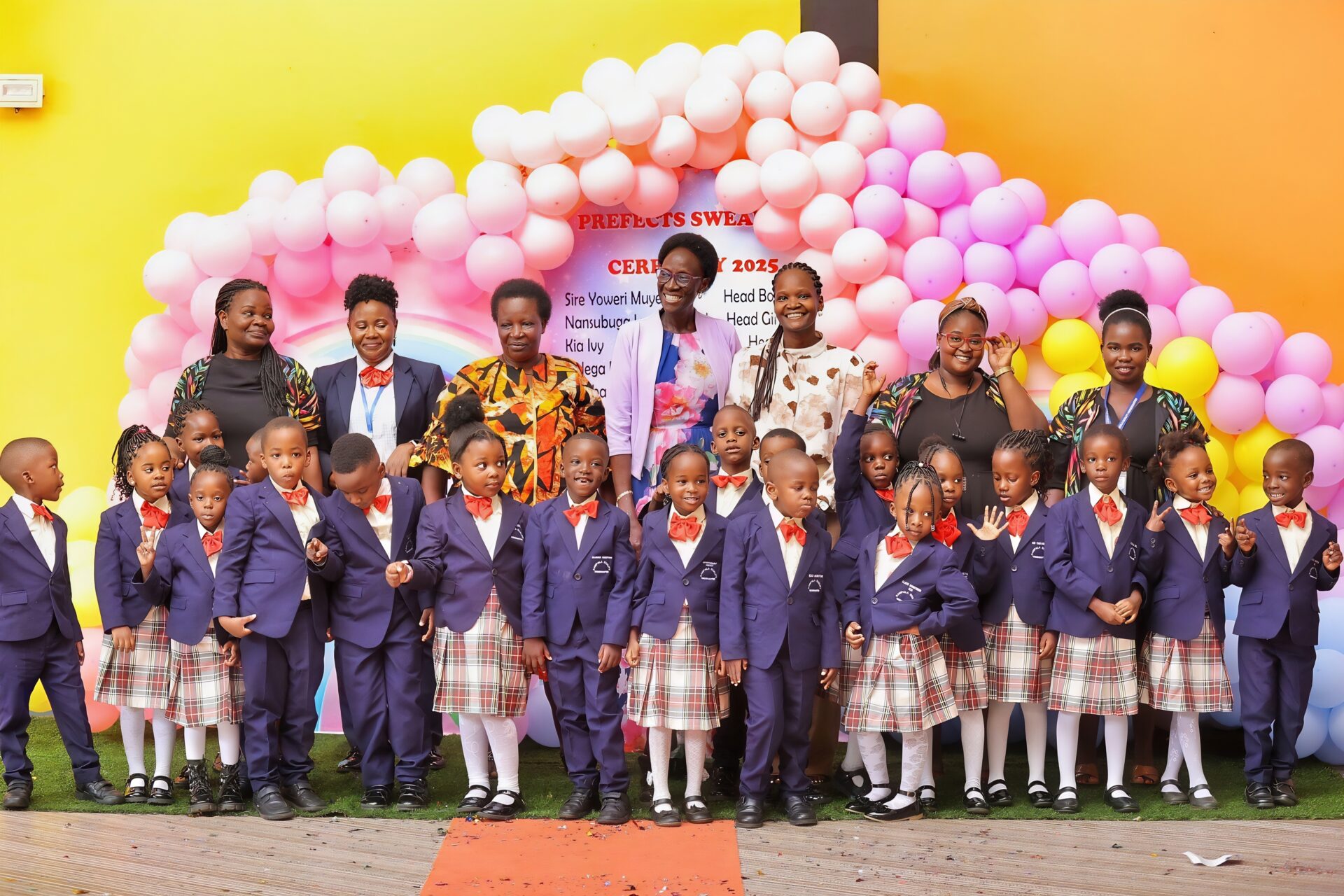
Prefect-led initiatives, such as organising inter-class competitions or spearheading community service projects, encourage collaboration across different groups within the school. These experiences teach children to appreciate diversity and find common ground—a lesson that extends beyond the playground to broader societal interactions. For instance, when a group of prefects successfully led a campaign to collect books for underprivileged rural schools, they demonstrated how leadership can transcend boundaries and address shared challenges.
Educators and policymakers can replicate this approach by designing programs that emphasise teamwork and cross-cultural understanding. Extracurricular activities, exchange programs, and joint projects with neighbouring schools could provide platforms for students to interact with peers from different backgrounds, fostering friendships and reducing prejudice. On a larger scale, incorporating leadership training into national youth empowerment strategies could strengthen social bonds and mitigate tensions arising from inequality or marginalisation.
Addressing Socio-economic Disparities
While Kampala Quality Kindergarten operates in a relatively privileged setting, its model holds valuable insights for addressing socio-economic disparities in education. Leadership development is not exclusive to affluent schools; it can be adapted to resource-limited contexts with creative solutions. For example, low-cost materials, community-driven initiatives, and parental involvement can replicate elements of the school’s success in underserved areas.
Policymakers should consider scaling up similar programs by allocating resources to early childhood education in rural and peri-urban regions. Mobile libraries, teacher training workshops, and partnerships with NGOs could bring leadership-focused activities to schools lacking infrastructure. Furthermore, scholarships or mentorship schemes targeting disadvantaged children could ensure equitable access to opportunities for personal growth.
By prioritising leadership development in marginalised communities, Uganda can break cycles of poverty and exclusion, empowering young people to advocate for themselves and their peers. This approach not only enhances individual prospects but also contributes to a more inclusive and equitable society.
Counterarguments: Balancing Idealism with Realism
Critics may argue that focusing on leadership in the early years risks diverting attention from immediate priorities, such as improving literacy rates or addressing overcrowded classrooms. While these concerns are valid, they overlook the fact that leadership development complements rather than competes with academic achievement. For instance, teaching children to lead group discussions or organise study sessions enhances their comprehension and retention of material. Similarly, fostering emotional intelligence reduces behavioural issues, creating a conducive learning environment for all students.
Furthermore, investing in leadership does not require extravagant expenditures. Simple yet impactful measures—such as rotating classroom responsibilities, encouraging collaborative projects, or celebrating student achievements—can yield significant results without straining budgets. Policymakers must therefore view leadership development as an integral component of quality education rather than an optional add-on.
Conclusion
As the applause faded and the newly sworn-in prefects returned to their classrooms, it became clear that this ceremony was about more than badges and titles. It was about planting the seeds of leadership in fertile ground, knowing that with time and care, these seeds will blossom into something extraordinary. The smiles on the children’s faces, the pride in their parents’ eyes, and the sense of unity among teachers and community members painted a vivid picture: leadership is not an abstract concept reserved for adults—it begins in the smallest, most unassuming places. Playgrounds, classrooms, and communities are the crucibles where tomorrow’s leaders are forged.
The story of Kampala Quality Kindergarten serves as a powerful reminder that leadership isn’t confined to boardrooms or parliaments—it starts in the everyday interactions and responsibilities entrusted to young minds. In Uganda, a nation rich in diversity yet grappling with challenges ranging from socio-economic disparities to governance gaps, nurturing leadership early offers a beacon of hope. These young leaders are learning to listen, to empathise, to collaborate, and to act with integrity—qualities that will shape not only their personal trajectories but also the collective future of their communities and country.

By empowering our youngest citizens to lead, we’re not merely shaping individuals; we’re laying the foundation for a more compassionate, equitable, and resilient world. When a child learns to mediate a disagreement between classmates, they are practicing conflict resolution—a skill vital for fostering peace in society. When another organises a cleanliness campaign, they are cultivating environmental stewardship—a mindset essential for sustainable development. And when yet another stands before their peers to deliver a speech, they are building confidence and public speaking abilities that will serve them throughout life. Each small step taken today reverberates far beyond the school gates.
So let us ask ourselves: if leadership truly begins early, what steps are we taking today to nurture the leaders of tomorrow? Are we providing children with opportunities to make decisions, solve problems, and take responsibility? Are we celebrating their efforts and teaching them resilience in the face of failure? Are we ensuring that every child—regardless of background—has access to environments where their potential can flourish?
In Uganda, where the youth population is one of the fastest-growing in the world, investing in early leadership development is not just an educational imperative but a societal necessity. Policymakers must prioritise funding for early childhood education programs that integrate leadership training. Educators must adopt innovative, child-centred approaches that balance academic rigour with character-building. Parents and communities must actively support schools in creating ecosystems where young leaders can thrive.
Ultimately, the success of initiatives like those at Kampala Quality Kindergarten reminds us that leadership is universal—it transcends age, geography, and circumstance. Whether it’s a child leading a game during break time or a teenager spearheading a community project, the essence of leadership lies in service, empathy, and action. As we celebrate the achievements of these young leaders, let us commit to nurturing similar sparks of potential in every corner of our society.
For the future belongs to those who prepare for it today—and there is no greater preparation than instilling the values of leadership, kindness, and responsibility in the hearts of our children. Let us plant the seeds now, water them with care, and watch as they grow into trees under whose shade generations will find shelter and inspiration.


